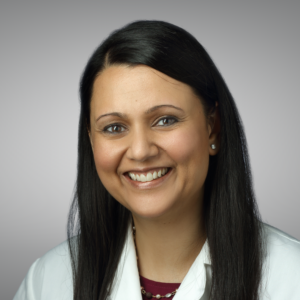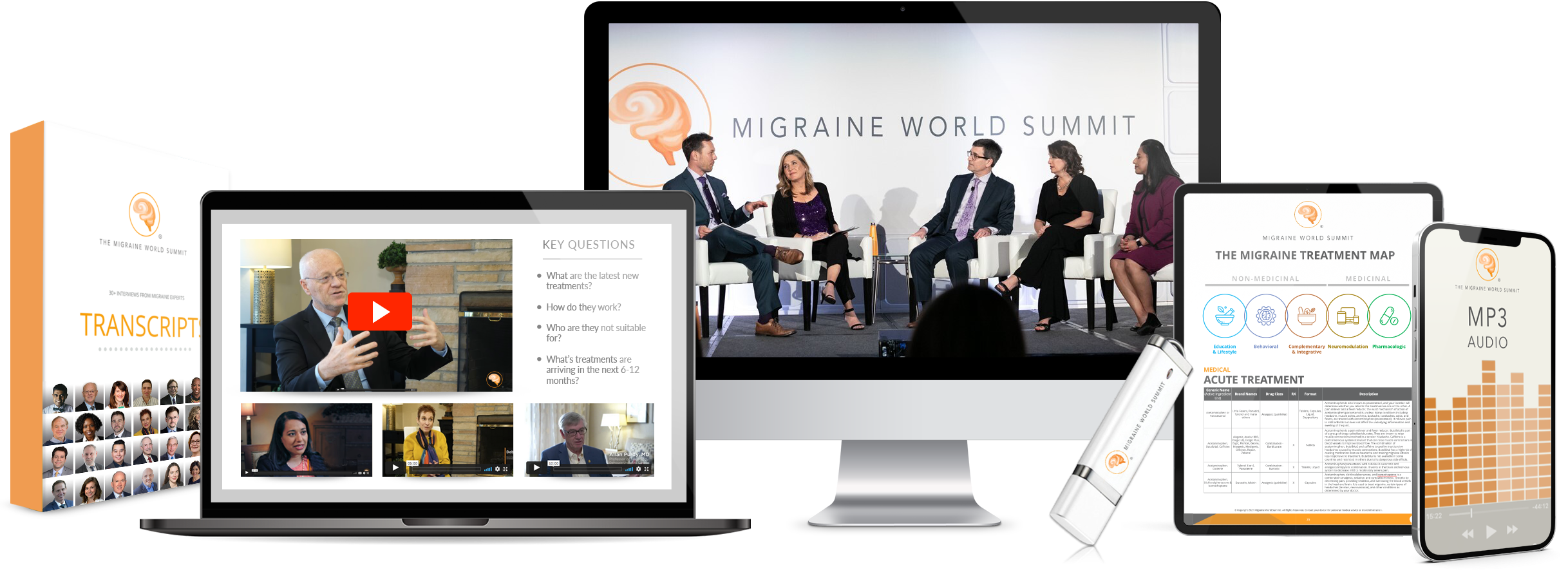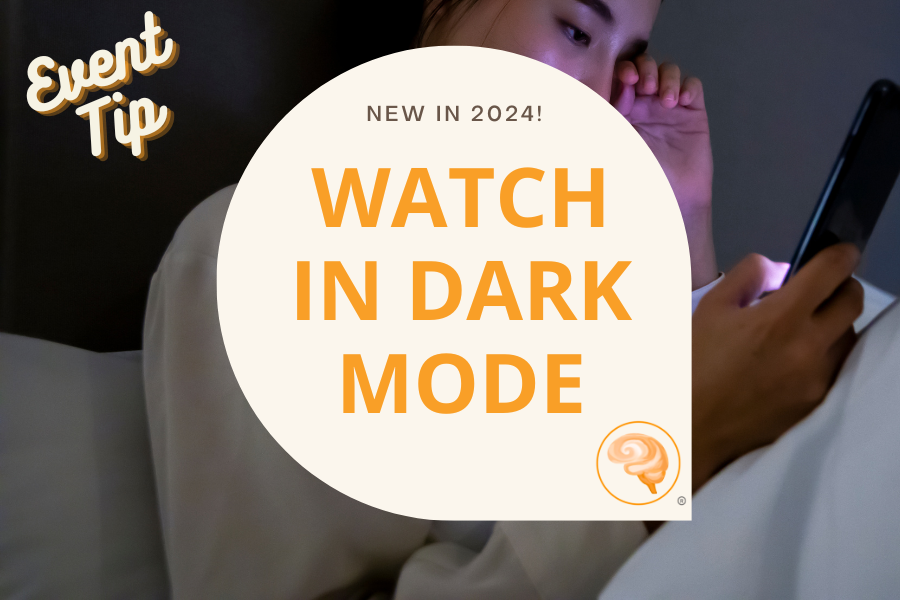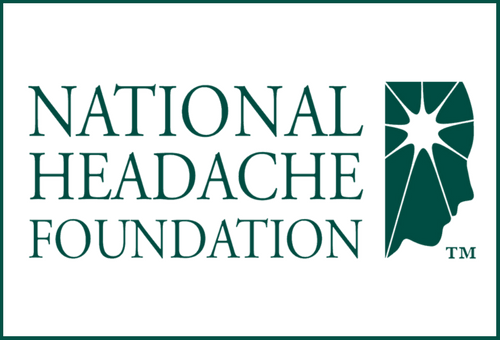Controlling Chronic Migraine
You are currently watching a preview of this interview. Unlock the full version by upgrading to an Access Pass bundle! Get FREE access to 8 expert interviews from Day 1 and Day 2 when you register today!
Key Questions
- What is chronic migraine? How is it different from episodic migraine?
- Why is it so important to get the correct diagnosis?
- How does a diagnosis of chronic migraine change the nature of treatment?
- How is chronic migraine different from other types of migraine or headache?
- What are some common misdiagnoses someone with chronic migraine might receive?
- How can chronic migraine patients manage migraine yet avoid medication overuse headache and the feeling of blame associated with that?
- What are some of the risk factors for chronification of migraine disease?
- Why is it important for the headache specialist and patient to establish and agree upon realistic goals for both preventive and acute migraine treatment?
- What new treatments for migraine might be effective for people with chronic migraine disease?
- What is the likelihood for transitioning from chronic back to episodic migraine?
- What are some options for chronic migraine patients who’ve tried many treatments, but none has been successful?
- What does the future hold for chronic migraine treatment?
Interview Notes
- MedStar – Jessica Ailani, MD
- Jefferson Health Headache Center
- Diamond Headache Clinic
- Michigan Head and Neck Institute
- Study: “Patient-centered treatment of chronic migraine with medication overuse”
- American Headache Society
- American Academy of Neurology
- National Headache Foundation
- American Migraine Foundation Move Against Migraine
- Think Migraine
- Migraine Again
- American Migraine Foundation
- Article: “How to Be a Better Migraine Care Partner”
- Article: “Five Ways to Help a Friend or Loved One Who Suffers From Migraines”
Treatments Mentioned
- Acupuncture
- Behavioral therapy
- CGRP inhibitors
- CGRP monoclonal antibodies (mAbs)
- CGRP small-molecule receptor antagonists (gepants)
- CBD (cannabidiol)
- Dry needling
- Exercise — cardiovascular
- Guided meditation apps
- Indomethacin
- Ketamine
- Massage
- Meditation
- Mindful breathing
- Neuromodulation
- NSAIDs
- OnabotulinumtoxinA (Botox)
- Pilates
- Physical therapy
- Psilocybin
- Psychologists
- SEEDS (Sleep, Exercise, Eat Healthy, Diary & Stress Management)
- THC (tetrahydrocannabinol)
- Trigger point injections
- Triptans
- Yoga
Please note: The Migraine World Summit’s aim is to bring you a variety of perspectives and expertise, independent of bias or judgment. Alternative theories presented in this video have not been medically reviewed. Views expressed in this interview do not necessarily represent the views of the Migraine World Summit. Please always consult your health care professional and do your own research before making changes to your treatment plan.

Jessica Ailani, MD, FAHS, FAAN
Director
MedStar Georgetown Headache Center
Dr. Jessica Ailani is board certified in neurology, with added certifications in neurology and headache. She is a professor of clinical neurology and vice co-chair of strategic planning for MedStar’s Georgetown University Hospital.
In addition, she is director of the MedStar Georgetown Headache Center. She is a specialist in headache and women’s health and is dedicated to patient education. Dr. Ailani is also a member of several professional societies, as well as a fellow of the American Headache Society and the American Academy of Neurology.
Interviews from Jessica Ailani, MD, FAHS, FAAN
Controlling Chronic Migraine
Nondrug Migraine Treatments That Work
Expert Tips to Manage Persistent Migraine Pain
Hormonal Migraine Seasons in a Woman’s Life

Get all the 2025 interviews, videos, audio, transcripts, and more. Why upgrade?
- Can’t attend live? Watch anytime
- Prefer reading or listening? Get transcripts and audio
- Want to dive deeper? Explore the additional footage & resources
- Need ongoing support? Reference expert advice year-round
- Lifetime access to 2025, no annual fee
Related Talks for: Day 1 (2024)
Best Exercise Options for People With Migraine
Elizabeth (Betsy) Seng, PhD
Beginner’s Guide to Headache Types
Courtney Seebadri-White, MD
Neurological Research Priorities
Walter Koroshetz, MD
Over the past 50 years, our mission at the National Headache Foundation has been to further awareness of headache and migraine as legitimate neurobiological diseases. Much has changed during this time. With aid from advanced technology and clinical innovation, there are more treatment options than ever before. However, we understand that these diseases are still largely misunderstood and that finding the right treatment options for you requires insight.
Lundbeck is a global pharmaceutical company focused exclusively on transformative treatments in neuroscience for people with high unmet need. Every day, we strive for improved treatment and a better life for people living with brain disease. We are committed to supporting the migraine community and helping to eliminate barriers that prevent people from being their best.

New in 2024! If you're light-sensitive or just want a more comfortable viewing experience on our site, the Summit is now available in Dark Mode! Just click the orange button in the lower left corner of your screen. Ahhh -- isn't that better?







